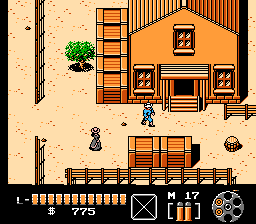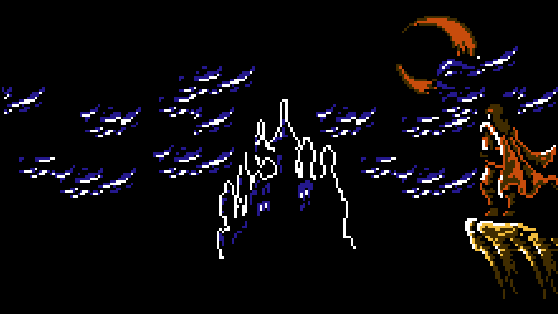This post has not been edited by the GamesBeat staff. Opinions by GamesBeat community writers do not necessarily reflect those of the staff.
I fancy myself a connoisseur of classic games. I’ve always wondered what it is about them that draws me in. I certainly enjoy newer games, but I like the old ones better. Playing Shining Force is akin to curling up to a copy of To Kill a Mockingbird. It’s a wonderful title that still holds up today.
I’m 33-years-old. I saw games make the leap from 8 to 16-bit, and that era of gaming is where most of my fondest memories come from. Some of the best games came out during that time. Titles like Battletoads and Castlevania III: Dracula’s Curse ruled the day. The console war raged on between Sega and Nintendo, and the little gray box gave the Sega Genesis serious competition. The monochrome Game Boy was cutting-edge technology, and I was one of two kids in my school who took a risk on owning a TurboGrafx-16.
 Games were good back then. Damn good. Even though The Lone Ranger for the Nintendo Entertainment System can’t compare to Red Dead Redemption in terms of production, it doesn’t matter. The games were fun, and developers were able to make use of the limited resources available to make quality experiences. Games were made complete and less buggy because you only got one shot at release. If you screwed it up, oh well. No Internet, no patching.
Games were good back then. Damn good. Even though The Lone Ranger for the Nintendo Entertainment System can’t compare to Red Dead Redemption in terms of production, it doesn’t matter. The games were fun, and developers were able to make use of the limited resources available to make quality experiences. Games were made complete and less buggy because you only got one shot at release. If you screwed it up, oh well. No Internet, no patching.
I’ve got kids. Two boys, ages 8 and 13. Gaming is something that we enjoy together, and we bond through smiting digital evil (or digital good, in some cases). I see the happiness that comes when they pick up a controller, and I absolutely love it. It’s the same way I felt when I was a kid, and I’m glad that I can share my love of video games with my children.
I was watching my sons play the Xbox the other day, and I realized something: the current generation of video games will be their classics. I grew up with games like Double Dragon, Contra, and The Guardian Legend. My kids will remember Minecraft and Gears of War as the games of their youth. I’ve lived through several console releases. They haven’t … yet.
The gap between my gaming knowledge and that my of sons’ is vast. My oldest son recently asked me what a Dreamcast is. My kids don’t really know why Mike Tyson’s Punch Out!! is significant in gaming history. They don’t smile the way I do because Mordecai and Rigby’s game console in the Cartoon Network’s Regular Show is a mock-up of the Sega Master System.
 On the other hand, the boys will get to experience things that I may never see in my lifetime. They are part of the new age of gaming. They are growing up in a time when games are taken seriously and are more than just mere toys. Production values at their best are almost comparable to blockbuster films.
On the other hand, the boys will get to experience things that I may never see in my lifetime. They are part of the new age of gaming. They are growing up in a time when games are taken seriously and are more than just mere toys. Production values at their best are almost comparable to blockbuster films.
My kids are part of an era when video games can appeal to all and not just a niche group. I come from a time where online play was a mere glint in a developer’s eye. Now, online play is ubiquitous and a given. You don’t even have to leave home to buy a title you want. Digital versions eliminate the fuss of damaging a physical copy, which happens often when you have children.
Games will continue to evolve, grow, and develop very rapidly. So I had to ask myself: Are the games of yesteryear truly better than those of today? Try asking a group of people which is better, Coke or Pepsi, and see what kind of results you get. It’s a personal choice. I like older games because that’s what I know. The classics are what I grew up with, and those are the games that make me happy. My children, however, have a totally different perspective on what they like and what they consider to be good. Mason, my oldest, loves shooters like Halo 4 and Call of Duty: Black Ops II. My 8-year-old, Zyon, loves Minecraft. They’ll both look back on today’s games with fondness and laud them as the great classics.
The definition of a classic is ultimately relative. As technology improves, so does the quality of games. Nintendo to me is like an Atari to my kids. And if my kids have kids, the upcoming PlayStation 4 and Xbox One consoles will just be “those systems way back then.”
Even though the term “classic” is subject to debate and is in a constant state of flux, good games will always survive the test of time. When the time comes, I will be more than happy to show my grand kids how we played with power back in the good ol’ days.

